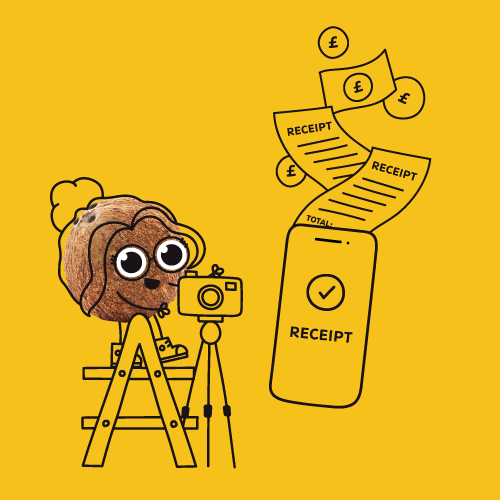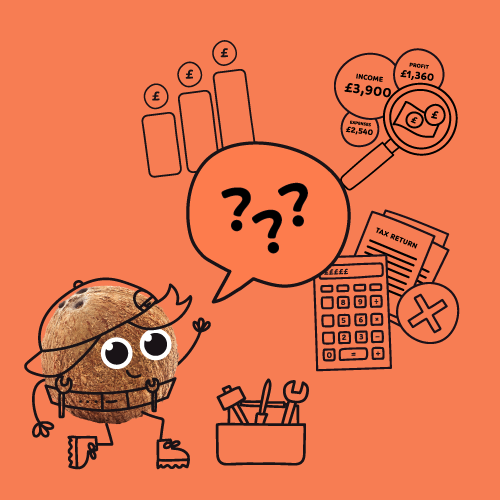There are 1.9m freelancers in the UK and they make up 46% of the “solo self-employed” population. Freelancers contribute £139bn to the UK economy every year., the membership organisation that supports freelancers, contractors and independent professionals.
About51% have been freelancing for more than 10 years. A quarter of UK freelancers live in London, while a further 22% live in the South East. Many UK businesses now rely on freelancers, they are common in many sectors, because they can provide a cost-effective alternative labour resource.
If you’re thinking of going freelance, whether full time or part time, here are seven important things that you should know…
1. Being a freelancer can be far better than being an employee…
Some people earn more as a freelancer. The flexibility freelancing offers better suits many people, often those with family responsibilities. Freelancing can allow you to wave goodbye to the daily commute and possibly work from home all or most of the time, which you might prefer.
Many people enjoy the variety that freelancing can provide, because you’re not stuck in the same place, doing the same thing with the same people every day. Freelancing might enable you to be more choosy about the work you do and who you do it for. You can be your own boss and perhaps lay the foundations for a business that you grow into something much bigger and more successful. Freelancing can also enable you to take on more responsibilities and learn new skills.
2. Freelancing may not be better than being an employee…
Sometimes the reality of freelancing doesn’t match the dream. Freelancing full time doesn’t necessarily mean you’ll earn more. You may not have as many holidays, you may work longer hours(including nights, weekends and bank holidays) and don’t expect any sick pay or holiday pay either.
Many freelancers operate in ultracompetitive markets where others will work for less. At times you may have little or no work, which can be very worrying when you have bills to pay. At other times you may have too much work, which brings its own pressures. And although you may believe that you’re your own boss, customers may place great demands on you, making it feel like they’re the boss. And despite all of the great work you’ve done in the past, a customer might suddenly use freelancer, without a thought for you. This can be the reality of full-time freelancing.
3. Networking is essential when you’re a freelancer…
Networking (online and in person) can bring many benefits to freelancers. Not only can “getting out there” enable you to raise your profile and win new business/customers, but it can also make you feel less lonely and isolated, which is a danger when you freelance, particularly if you work from home all or most of the time. Networking can also enable you to learn from other freelancers, as long as you’re also willing to share your knowledge and experience. They might even tell you where you can find work.
4. Software and apps can make a massive difference to freelancers…
A bewildering range of software/apps can really save you time, effort and money as a busy freelancer, making various tasks much easier and cheaper, while enabling you to run your freelance business much more effectively. They include everything from accounting software packages and apps that allow you to almost effortlessly complete your annual tax returns, to those that take the pain out of sending invoices and chasing payment when overdue.
Apps allow freelancers to better track their income, expenses or how much time they spend on tasks. They can enable freelancers to expertly manage projects, client relationships, time, workload, productivity, cash flow – even personal health, fitness and well being. Crucially, some apps can help you to find freelance work. Fully research what apps are available and use them to their full potential.
5. You must manage your freelance expenses effectively…
Freelancing can mean having to pay for lots of expenses. Thankfully, many can be claimed as “allowable expenses’, which will reduce your tax bill. Find out about all of the tax expenses you can claim as a freelancer. Be methodical when recording your freelance business expenses. Preferably, record them into accounting software and do it regularly, so that the task doesn’t become difficult, time-consuming and even more boring. Carefully managing your freelance expenses will make it easier to control your cash flow and complete your tax returns. It will also ensure that you don’t forget about any expenses and pay too much tax as a consequence.
6. You need to know your main tax responsibilities as a freelancer…
Overwhelmingly, freelancers become “sole traders” when they register as self-employed, rather than registering a limited company (which is a different legal structure). As a sole trader you must:
● maintain detailed records of your business income and expenses
● complete and file a Self Assessment tax return (SA100) every year, as well as supplementary tax return page SA103, summarising your freelance income and any expenses you wish to claim
● the online filing deadline for Self Assessment tax returns is midnight on 31 January; you can file your Self Assessment tax return any time after the UK tax year ends on 5 April(there’s an immediate £100 fine if you’re late)
● pay Income Tax on your taxable profits and any Class 2 and Class 4 National Insurance contributions(NICs) due.
7. You should know how much tax you’ll pay as a freelancer…
All of your taxable income will be added together and you’ll be taxed according to the Income Tax band you fall into. Your taxable income might also include rental income, share dividend or pension payments, etc.
You don’t pay tax on your first £12,570 of income, as this is your Personal Allowance. This decreases by £1 for every £2 of net income over £100,000 and if your net income is over £125,140 – you don’t get the Personal Allowance.
● You’re in the basic rate of Income Tax if your total taxable income is between £12,571 and £50,270. You’ll pay 20% Income Tax.
● You’re in the higher rate of Income Tax if your total taxable income is between £50,271and £125,140. You’ll pay 40% Income Tax.
● You fall into the additional rate of Income Tax if your total taxable income is more than £125,140. You’ll pay 45% Income Tax. (Income Tax bands and rates are different in Scotland).
If your freelance profits are £12,570 or more a year, you pay Class 2 National Insurance contributions (NICs) through Self Assessment (£3.45 a week) and Class4 NICs of 9% on profits between £12,570 and £50,270 and 2% on profits above £50,270 (2023/24 tax year for all figures quoted).
If you’re employed and freelance on the side, you’ll pay Income Tax and Class 1 NICs through your employer’s payroll, as well as Income Tax and NICs (2s and possibly 4s) on your self-employed income via Self Assessment, determined by your total taxable income. HMRC will inform you how much Income Tax and NICs are payable on your taxable freelance income after you’ve filed your Self Assessment tax return.
You must register for VAT if your total VAT-taxable freelance turnover for the past12 months was more than £85,000 (the VAT threshold) or you expect it to exceed £85,000 in the next 30 days. You can only claim back VAT if you’re VAT registered. Even if your VAT-taxable turnover is below the VAT threshold, you can register voluntarily, enabling you to reclaim VAT you’ve paid, but it involves having to file VAT returns digitally each quarter and pay any VAT due.
Need to know! Thanks to the Trading Allowance, you can earn up to £1,000 in freelance income without paying any tax. So, if you freelance to earn a few extra quid and it’s less than £1,000 a year, you don’t need to report it or register. However, if you claim the Trading Allowance you cannot claim any allowable expenses, so work out which option is more tax-efficient for you.
And finally…
Trying to hide taxable income isn’t wise. HMRC uses highly sophisticated software to find out about taxable income from bank records, savings, pensions and investment records, credit/debit card payments, etc. Concealing taxable in come or making fraudulent tax expense claims can lead to a heavy fine and possibly worse. HMRC can ask for proof of tax expenses you claim and to see your business records.











